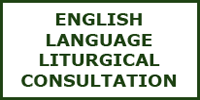Foreword
Since the appearance of Prayers We Have in Common in 1970, 1971, and 1975 by the International Consultation on English Texts (ICET), the major Christian Churches throughout the English-speaking world have adopted many of the liturgical forms then proposed for common use. Some of these have found almost universal acceptance, but others clearly required further work and consultation.
The foreword to Prayers We Have in Common observed: “There has also been a growing realization that, at least in regard to those prayers which are common to all Christian confessions, this work should not be done independently by the various Churches, but should be done by them together.”
What was true at the formation of ICET in 1969 remains true today. Indeed it has become more pressing with the revision by many Churches of their order of service and as a result of increasing opportunities for Christians of different backgrounds to share in each other’s worship. Moreover, new considerations have come to be seen as important, especially in regard to the development of a liturgical language which reflects the truths that both male and female were created in the image of God (Genesis 1:27) and that in Christ there is neither male nor female (Galatians 3:28).
The English Language Liturgical Consultation (ELLC) was established at a meeting at Boston University in August 1985, after informal negotiations between the International Commission on English in the Liturgy (ICEL, a Roman Catholic body with a permanent secretariat) and the ecumenical liturgical consultations which have been established by the Churches in various parts of the English-speaking world. From the outset it was agreed that ELLC’s work would cover many aspects of liturgy and not only the revision of texts. It is thus more than a successor to ICET.
The present booklet is expected to be the first of a number of international and ecumenical publications in the field of liturgy by ELLC. It is offered not only for consideration by different Churches, in the hope that the work will be found acceptable for widespread use in its present form, but also for the study of interested Christians who wish to remain abreast of current thinking and scholarship in the area. Not all scholars, of course, will agree with the conclusions reached. Some would prefer a different form of words, either more conservative or more radical.
The Consultation claims only to have considered seriously the very large number of submissions received through its member associations (see the list that follows the introduction) and to have done its best to produce texts which will be acceptable to the great majority in this generation. May its work be found worthy of the use to which we hope it will be put, and so promote the cause of Christian unity.
